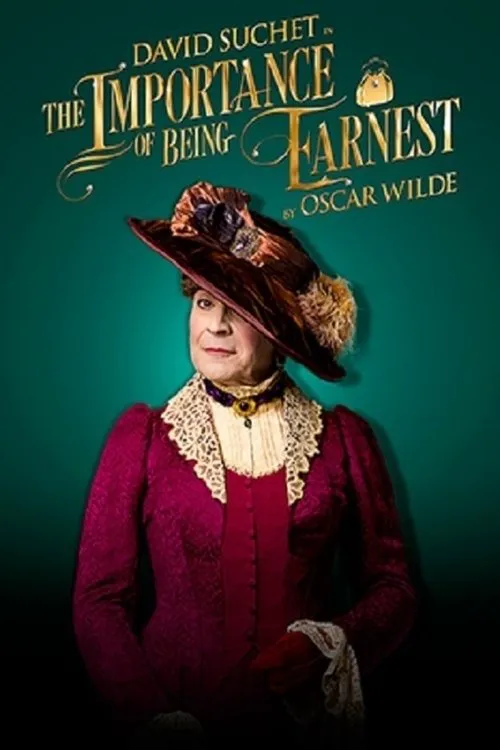The Importance of Being Earnest on Stage

Intrigue
In the esteemed setting of the Victorian era, Oscar Wilde's masterful stage play, The Importance of Being Earnest, weaves a witty and satirical tale of love, deception, and societal expectations. On this particular production, the enigmatic Lady Bracknell, a figure as imposing as she is elegant, is brought to life by the incomparable David Suchet, renowned for his captivating portrayal of the esteemed detective Hercule Poirot. The play's narrative centers around the complex web of relationships between two affable bachelor friends, Algernon Moncrieff and John Worthing J.P. They have concocted separate personas to win the affection of the radiant and desirable women they have fallen for: the exquisite Gwendolyn Fairfax and the charming Cecily Cardew. Algernon, a charismatic and urbane dandy, adopts the alias "Bunbury" to justify his frequent absences from the countryside, whereas John Worthing has fabricated the existence of an invalid friend named "Earnest" to justify his own escape to the city. This dichotomy allows them to maintain an air of sophistication and charm in the pursuit of love. Philip Cumbus, a talented actor in his own right, masterfully captures the whimsical and effervescent personality of Algernon Moncrieff. His portrayal conveys the perfect blend of wit, humor, and charm, allowing the audience to be won over by Algernon's endearing nature. Cumbus effectively navigates the intricate complexities of Algernon's dual identity, bringing gravity and authenticity to the character. In contrast, Michael Benz, a talented actor with experience in period dramas such as Downton Abbey, brings a sense of gravitas and reliability to the role of John Worthing J.P. His portrayal effectively contrasts with Algernon's flamboyant persona, creating an intriguing dynamic between the two characters. Benz skillfully captures the more serious and introspective nature of John Worthing, allowing the audience to empathize with his desires and the societal pressures he faces. As for the ladies, Gwendolyn and Cecily are two charming and desirable women who become entangled in the web of deceit spun by Algernon and John Worthing. Emily Barber and Imogen Doel respectively bring these characters to life, exuding elegance and poise as they navigate their relationships with the bachelors. However, at the forefront of the story is the imposing figure of Lady Bracknell, played to perfection by David Suchet. Her presence is a force to be reckoned with, as she interrogates and scrutinizes those around her with her sharp wit and discerning nature. Suchet brings her to life with his characteristic subtlety and nuance, imbuing the character with a sense of elegance and sophistication, despite her formidable demeanor. Throughout the play, Wilde skillfully satirizes the societal conventions of the Victorian era, poking fun at the social hierarchy and the expectations placed upon individuals. The Importance of Being Earnest is a masterful exploration of love, deception, and the complexities of relationships, set against the backdrop of a period that prized formality and tradition. In the midst of this intricate web of relationships, Wilde masterfully exposes the hypocrisy and pretension that underpin the societal expectations of the time. His razor-sharp wit and incisive observations on the human condition make this play a timeless masterpiece, capable of entertaining audiences today just as it did when first performed in the late 19th century. The Importance of Being Earnest is a testament to Oscar Wilde's remarkable writing, with its intricate plot and memorable characters making it a captivating and hilarious experience for the audience. With its witty dialogue, memorable characters, and sharp satire, this play continues to captivate audiences today, making it an enduring classic in the world of theatre.
Critiques
Recommandations


